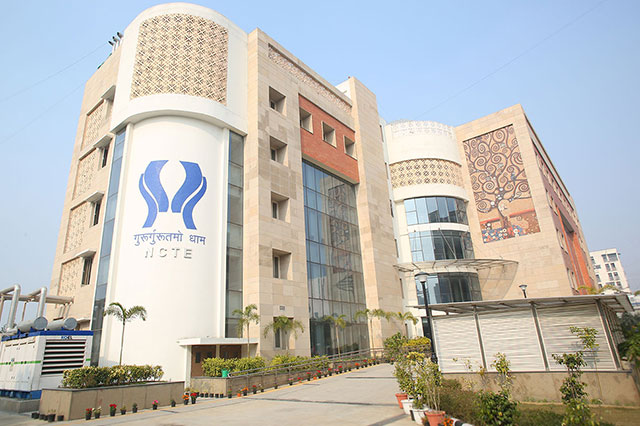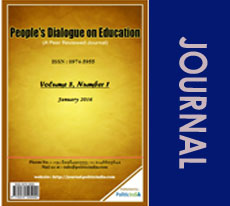Quality Issues of Teacher Education in Present Scenario
- Post By PoliticIndia.com on
- 02/Oct/2019

Challenges of school and teacher education are immense in India. In spite of making elementary education a fundamental right of our children, the governmental and non-governmental reports suggest that a large number of children have not achieved foundational literacy and numeracy at the elementary level of schooling. The draft NEP 2019 says "If action is not taken soon, over the next few years the country could lose 10 crore or more students from the learning system and to illiteracy”.
Not only this ECCE is a very important area which has been neglected and pre-school education is yet to become an integral part of our school system. It has already been established beyond doubt that pre-schooling has a great impact on learning and retention of the children during school education. Draft NPE 2019 further says “Universal access to quality early childhood education is perhaps the best investment that India can make for our children’s and our nation’s future. “
Attaining quality early childhood and school education is not possible until we have quality teacher education in the country. At present quality of teacher education is under heavy criticism and facing numerous challenges. The draft NEP 2019 has seriously questioned the integrity and credibility of the teacher education system in India. According to this draft policy, Teacher Education has witnessed a severe decline in our country.
In order to improve the quality of Teacher Education, it has become imperative to meet the challenges of Teacher Education. Challenges include providing rigorous theoretical and pedagogical understanding, connecting theory and practice, making continuous research and innovations, imparting teacher education in a composite culture of higher education, the close link among teacher education institutions, schools and community, etc. The draft NEP argues that all genuine teacher education institutions must aim to become multi-disciplinary higher educational institutions by 2030. All teacher education will happen in multidisciplinary institutions and teacher education will be an integral part of higher education.
The discussion and recommendations of draft NEP appear to have been drawn from the Justice Verma Committee report, 2012 to a great extent. But during the last 4 years, the NCTE has interpreted the recommendations of Justice Verma Committee in such a way that the quality of Teacher Education has further gone down. The extension of the duration of B.Ed. programme from one year to two, new curriculum framework and reorganization of theoretical courses, introduction of courses on EPCs, introduction of fieldwork and longer duration of internship etc. could not bring desired changes in the quality of teacher education. The NCTE's narrow perception of composite culture has further led to the opening of a large number of D.El.Ed. and M.Ed. programmes along with B.Ed. programmes providing substandard teacher education. The existing norm of NCTE for four year integrated B.Ed. programme appears to be contradictory to the concept of the draft NEP 2019 regarding the major transformation of teacher education that will bring back high quality to the system following the true multidisciplinary requirements of modern education. The existing norm of NCTE for four year integrated B.Ed. programme will never be able to integrate the teacher education with other disciplines of multidisciplinary institutions. Of late the bureaucratic control on the NCTE has increased leading to weaker linkage with academia. This may be the reason for the poor perception of NCTE of the Justice Verma Committee recommendations reflected in the NCTE norms 2014.
The transition of existing teacher education institutions who were nurtured as isolated professional institutions all along with the history into a multidisciplinary composite institution is a very difficult and challenging task. The changes brought in the B.Ed. and M.Ed. programmes during last four years appeared to have measurably failed in bringing quality in the teacher education. There may be various reasons like lack of preparedness at institutional level, no institutional or self-opportunity for improvement of faculty members, arbitrary and frequent changes in appointment of teachers for different programmes, no defined and effective linkage among TEIs, affiliating universities, practicing schools and community, no standard and rigourous recruitment process, no well-defined service conditions for teachers, no control of regulatory and affiliating authorities over service conditions of teachers, no facilities for research and innovations etc. The existing NCTE norms and regulations for four year integrated B.Ed. programme is simply not in tune with the perception and changes suggested by the draft NEP 2019. We should also think to bring qualitative changes in the existing setup of TEIs in terms of selection of quality teachers, creating space for research and innovations, strong linkage among the universities, TEIs and NCTE, strong linkage between TEIs and practicing schools etc. The NCTE has been constantly failing in its regulatory function, hence there appears a strong need to strengthen NCTE or replace it by another appropriate body. (blog article is the abstract of keynote address delivered in the national seminar held at AHTTC, Bokaro on 21 Sept. 2019)





